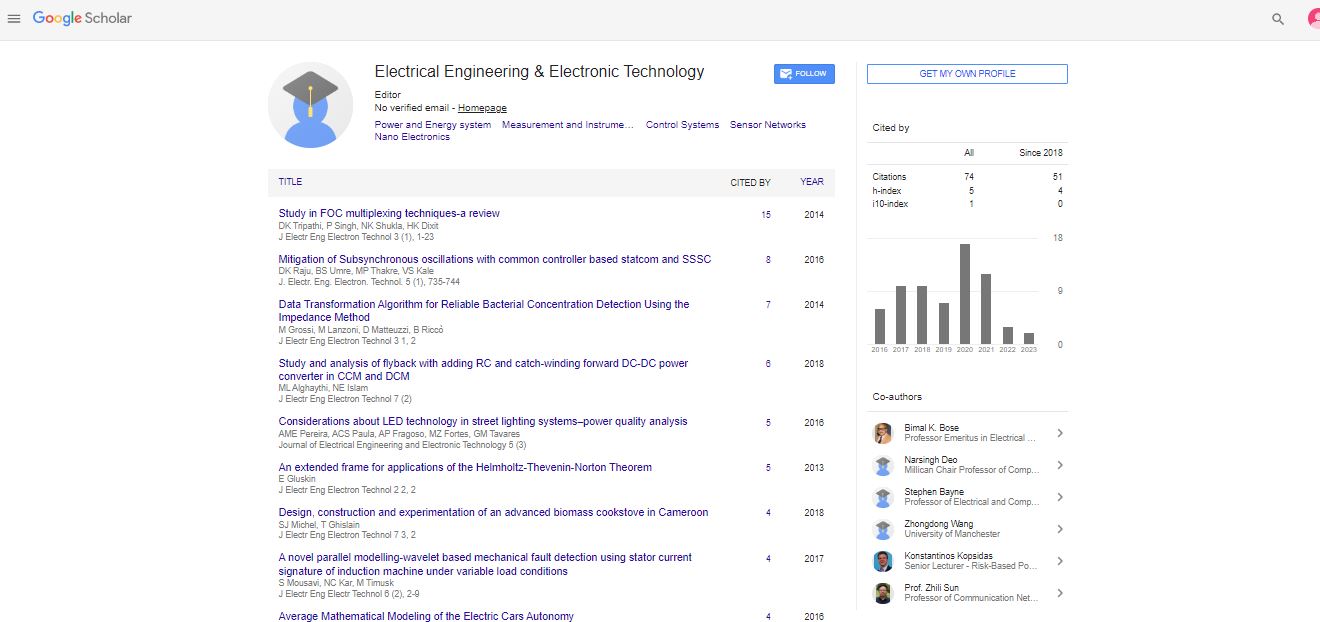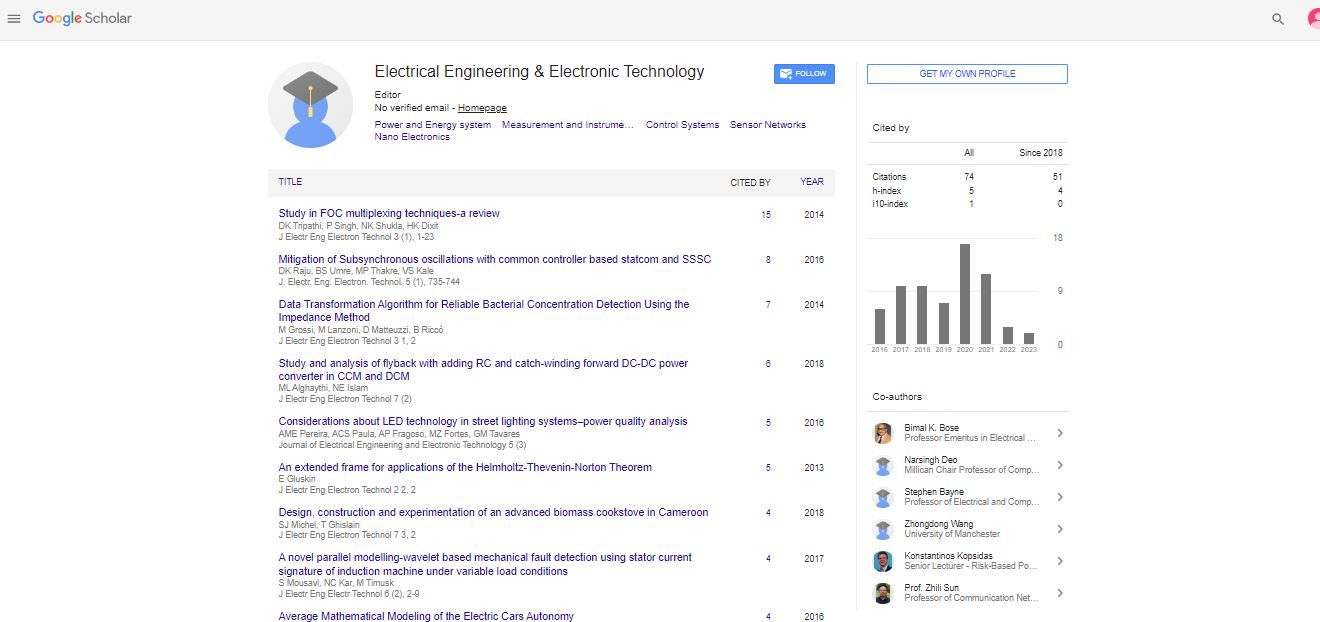Perspective, J Electr Eng Electron Technol Vol: 12 Issue: 6
Future Trends in Electrical Machines: Modeling, Control, and Sustainable Applications
Kimberly Nelson*
Department of Electrical Engineering, University of California, Berkeley, California, USA
*Corresponding Author: Kimberly Nelson
Department of Electrical Engineering, University of California, Berkeley, California, USA
E-mail: nelson.kimberly_24@gmail.com
Received date: 23 October, 2023, Manuscript No. JEEET-23-122061;
Editor assigned date: 25 October, 2023, Pre QC No. JEEET-23-122061 (PQ);
Reviewed date: 08 November, 2023, QC No. JEEET-23-122061;
Reviewed date: 08 November, 2023, QC No. JEEET-23-122061;
Published date: 22 November, 2023, DOI: 10.4172/2325-9838.1000972.
Citation: Nelson K (2023) Future Trends in Electrical Machines: Modeling, Control, and Sustainable Applications. J Electr Eng Electron Technol 12:6.
Description
The study delves into the intricate realm of electrical machines and the sophisticated control systems that drive them. This field is fundamental to diverse industries, playing a pivotal role in shaping the efficiency and precision of machinery across manufacturing, energy, and transportation sectors. This provides an overview of the key aspects, methodologies, and applications associated with the modeling and control of electrical machines.
Electrical machines form the backbone of modern industrial systems, converting electrical energy into mechanical work. The efficiency and performance of these machines are contingent upon the effectiveness of their control systems. It begins by elucidating the significance of electrical machines and drives in various applications, setting the stage for an exploration of their modeling and control.
Fundamentals of electrical machines
Understanding the principles of electrical machines is paramount. This section provides a comprehensive overview of different types of electrical machines, including Direct Current (DC), Alternative Current (AC) synchronous, and induction machines. It elucidates the operating principles and characteristics that underpin their functionality, laying the groundwork for subsequent discussions on control and modeling.
Modeling of electrical machines
Mathematical representation forms the crux of modeling electrical machines. This delves into the development of equivalent circuits and parameters that encapsulate the behavior of these machines. Dynamic modeling is explored for transient analysis, allowing for a nuanced understanding of machine responses under varying conditions.
Power electronic converters
Power electronics plays a pivotal role in the control of electrical machines. This section introduces the essential role of power electronic converters, including inverters, converters, and controllers. It explores their influence on machine performance, emphasizing the integral link between power electronics and effective machine control.
Control strategies: Control strategies are the linchpin of ensuring precise and efficient operation of electrical machines. It elucidates the principles of open-loop and closed-loop control systems, delving into strategies for speed, position, and torque control. This section provides a comprehensive understanding of the diverse techniques employed to optimize machine performance under varying operational conditions.
Sensor less control: Eliminating the dependency on position and speed sensors is a critical advancement in the field. This explores sensor less control techniques, including observer-based strategies that enhance the reliability and cost-effectiveness of electrical machine control systems.
Advanced topics in drives: This section delves into advanced control strategies, including vector control and field-oriented control. Direct torque control methodologies are explored, showcasing the cutting-edge techniques employed to achieve unparalleled precision and efficiency in machine control.
Applications
The real-world applicability of the study is showcased through an exploration of industrial applications of electrical machines and drives. It also delves into the role of these systems in electric vehicles, hybrid systems, and renewable energy applications.
Conclusion
The study concludes by examining the challenges faced in the field and delineates potential future trends. It explores emerging technologies, such as integration with smart grids and Industry 4.0, highlighting the trajectory of the field towards sustainability and enhanced energy efficiency. In conclusion, this provides a holistic understanding of "Electrical Machines and Drives: Modeling and Control." It serves as a valuable resource for students, researchers, and professionals in the electrical engineering domain, offering insights into the latest advancements and future trajectories in the modeling and control of electrical machines.
 Spanish
Spanish  Chinese
Chinese  Russian
Russian  German
German  French
French  Japanese
Japanese  Portuguese
Portuguese  Hindi
Hindi 
